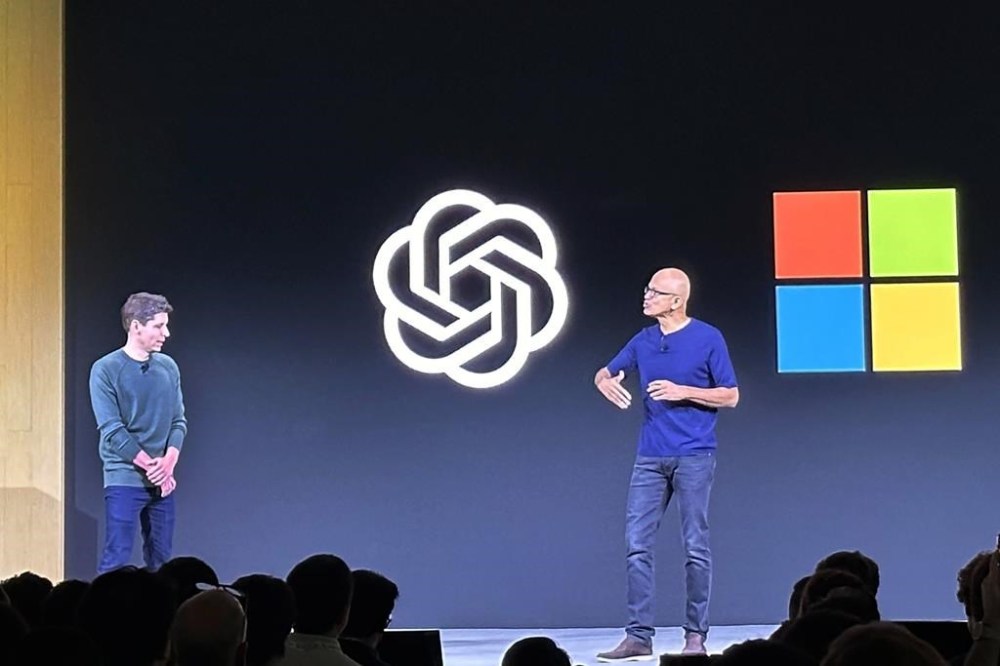Microsoft’s OpenAI investment could trigger EU merger review
Advertisement
Read this article for free:
or
Already have an account? Log in here »
To continue reading, please subscribe:
Monthly Digital Subscription
$0 for the first 4 weeks*
- Enjoy unlimited reading on winnipegfreepress.com
- Read the E-Edition, our digital replica newspaper
- Access News Break, our award-winning app
- Play interactive puzzles
*No charge for 4 weeks then price increases to the regular rate of $19.00 plus GST every four weeks. Offer available to new and qualified returning subscribers only. Cancel any time.
Monthly Digital Subscription
$4.75/week*
- Enjoy unlimited reading on winnipegfreepress.com
- Read the E-Edition, our digital replica newspaper
- Access News Break, our award-winning app
- Play interactive puzzles
*Billed as $19 plus GST every four weeks. Cancel any time.
To continue reading, please subscribe:
Add Free Press access to your Brandon Sun subscription for only an additional
$1 for the first 4 weeks*
*Your next subscription payment will increase by $1.00 and you will be charged $16.99 plus GST for four weeks. After four weeks, your payment will increase to $23.99 plus GST every four weeks.
Read unlimited articles for free today:
or
Already have an account? Log in here »
Hey there, time traveller!
This article was published 09/01/2024 (719 days ago), so information in it may no longer be current.
LONDON (AP) — Microsoft’s multibillion-dollar investment in ChatGPT-maker OpenAI could trigger a European Union merger investigation, the bloc’s executive branch said Tuesday.
The European Commission said it’s “checking whether Microsoft’s investment in OpenAI might be reviewable” under regulations covering mergers and acquisitions that would harm competition in the 27-nation EU.
The review could lead to a formal investigation into whether the deal should be unconditionally cleared, allowed with concessions from the companies or blocked. Britain’s antitrust watchdog opened a similar review last month.

Antitrust enforcers in the U.S. also have signaled concerns about competition in the AI industry. The Federal Trade Commission in November approved new measures enabling it to more easily investigate AI products and services, noting that “AI can raise competition issues in a variety of ways, including if one or just a few companies control the essential inputs or technologies that underpin AI.”
OpenAI has received several rounds of funding from Microsoft, including an initial $1 billion in 2019 and a multibillion-dollar investment last year.
OpenAI’s generative AI chatbot ChatGPT has captured world attention with its advanced capabilities, catapulting the San Francisco-based startup to the top ranks of AI companies. Generative AI systems like ChatGPT can spit out new text, images, videos or audio recordings based on prompts from users.
The European Commission, the bloc’s top antitrust enforcer, is asking businesses and experts for input on any competition issues that they see in generative AI and has asked “several large digital players” — which it didn’t identify — for information.
The commission is “also closely monitoring AI partnerships to ensure they do not unduly distort market dynamics,” the EU’s antitrust enforcer, Margrethe Vestager, said in a press release.
Vestager is due to meet with OpenAI executives on a trip this week to the U.S., as well as Google CEO Sundar Pichai, Apple CEO Tim Cook and Nvidia CEO Jensen Huang.

